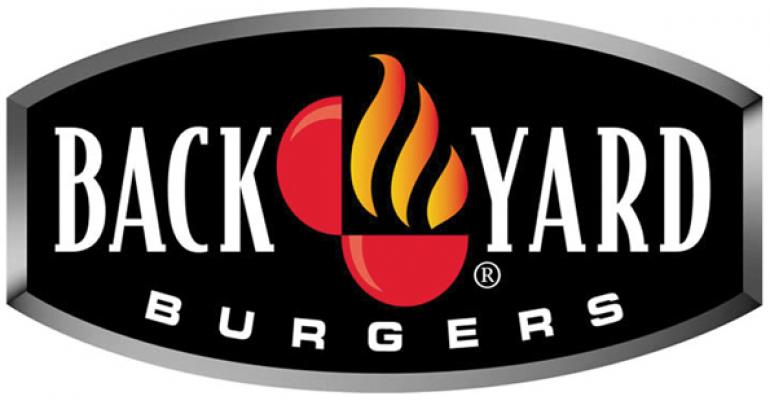When David McDougall took over Nashville, Tenn.-based Back Yard Burgers nearly a year and a half ago, his biggest obstacle was getting buy-in for his turnaround plans from franchisees and managers who weren’t sure he would stick around long as chief executive.
“The biggest thing, starting with the franchisees, was that there was no trust,” McDougall said. “They’d heard great things before from previous leadership, but there had been constant change in that leadership.”
McDougall joined Back Yard Burgers as chief executive in January 2013, about three months after the company filed for Chapter 11 bankruptcy protection. He set off to focus on three strategic pillars: unit-level economics, franchise relations and “going back to our roots.”
RELATED
• Back Yard Burgers names David McDougall CEO
• Back Yard agrees to be acquired for $38M
• More restaurant finance news

While a return to unit expansion is still months away, Back Yard Burgers’ turnaround initiatives appear to be taking hold. The company has reported 12 consecutive months of positive same-store sales and increased revenue.
“My focus right now is how we make the current financials of our existing restaurants stronger and more attractive,” McDougall said. “The real plan is 2015 and beyond, when we will put a more formal process in place to sell franchises and develop stores.”
Back Yard Burgers emerged from bankruptcy less than four months after its October 2012 filing, getting a $14 million infusion of financing from Nashville, Tenn.-based Pharos Capital Group LLC. At the time of its bankruptcy filing, Back Yard Burgers had debts of about $50 million.
Lattimore Michael founded the concept in Mississippi in 1986, and soon moved its headquarters to Memphis, Tenn., eventually taking the brand public in 1993. In 2007, BBAC LLC, a holding firm created by Pharos Capital and Cherokee Advisors, took the chain private in a $38 million acquisition.
At its peak, Back Yard Burgers had 180 locations, which had shrunk to 85 units at the time of the bankruptcy filing. It currently has 68 company-owned or franchised restaurants in 14 states.
‘The customer is king’
McDougall said the most important part in turning around a brand fresh out of bankruptcy initially was to listen, not only to franchisees and employees, but also to customers. The chain embarked upon a major market research project to find what its strengths with consumers were.
“There hadn’t been any formal research done for many years, but I was a big believer in brand architecture and having a strategy to put together around that,” McDougall said. “Right out of the gate, even though we didn’t have a lot of resources, we had to get that done.”
The research revealed that Back Yard Burgers had high credibility among customers for authentic grilled menu items, chief marketing officer Monte Jump said. The chain redoubled its menu development efforts around premium burgers as a result, leading to more frequent limited-time offers like the current Prime Rib Burger, which features a half-pound of ground prime rib, caramelized onions and garlic-Parmesan aioli on a brioche bun.
“Many chains tend to develop products in a vacuum without speaking to the customer, but we took the approach that the customer is king,” Jump said. “We get a lot of credit for the depth and breadth of our menu: not just burgers, but also chicken, salads, turkey burgers and milk shakes. There had been a lot of activity in development not on the grill, and those products really fell flat, so we’re now laser-focused on the grill.”
Jump said news of the bankruptcy filing got around Back Yard’s major markets and created a new marketing challenge.
“Our consumers are pretty astute, particularly in the Memphis market,” he said. “They were very aware of the filing, and we simultaneously closed a few locations in the area, so there was this broad notion that we had closed all our stores. So we put a ton of print out into the market, and still do today, with the address of every location in Memphis and have been able to get that turned around.”
McDougall acknowledged that Back Yard Burgers’ eventual resumption of growth would occur with a “better burger” segment of quick service that remains one of the industry’s fastest-growing sectors.
“There’s no question the burger segment is the most competitive,” he said. “Every day there seems to be somebody throwing their hat in. But my strategy is ‘let’s focus on our niche with our very loyal group of supporters and work from that.’”
Contact Mark Brandau at [email protected].
Follow him on Twitter: @Mark_from_NRN





